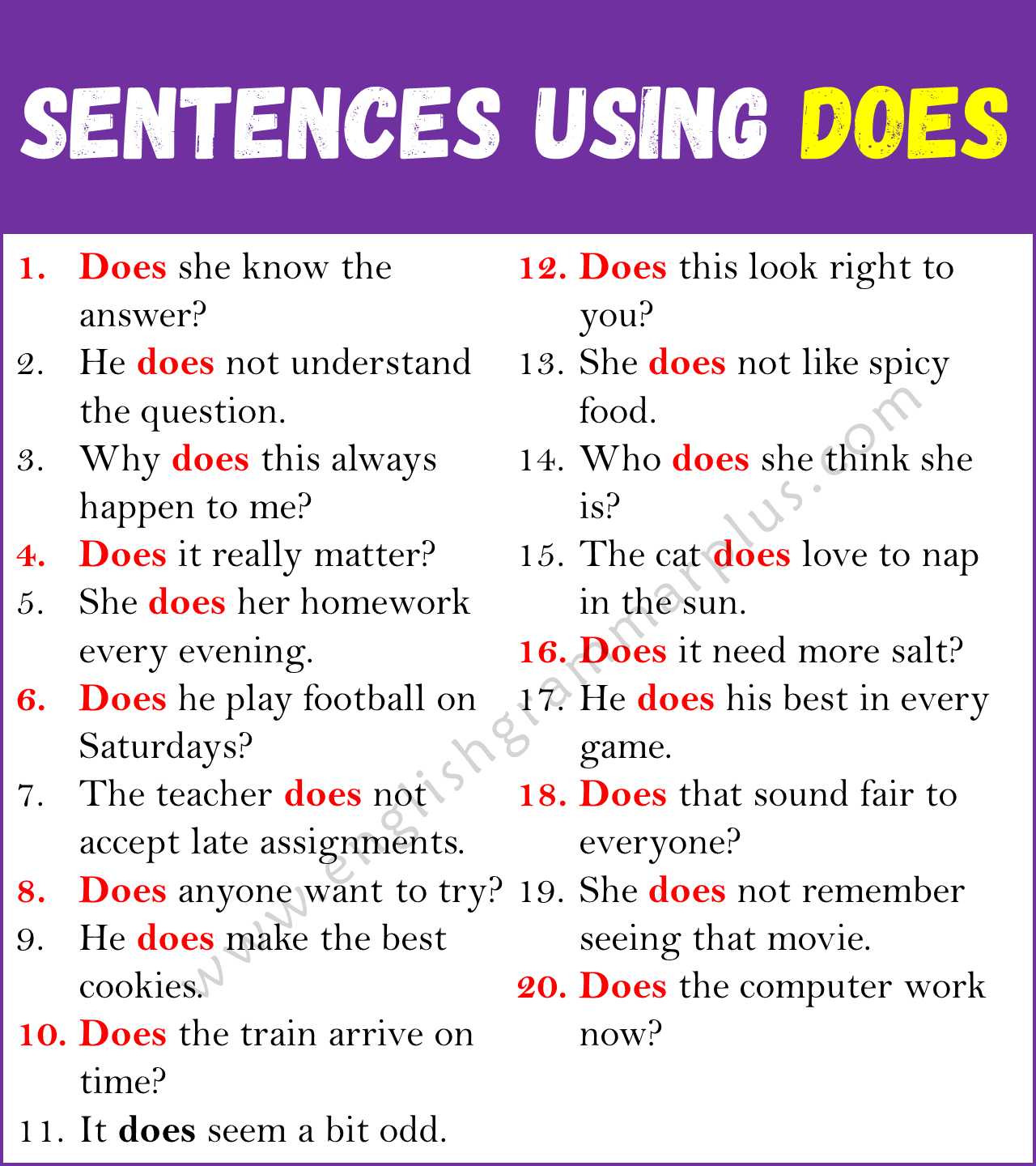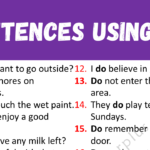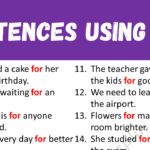Today we’re looking at a little word that does a big job in English sentences: “does.” This lesson is all about how “does” is used and why it’s important for anyone learning English. “Does” might seem small, but it plays a key role in asking questions and making sentences clear. So, let’s make sure we know how to use it right. This useful lesson is like a helpful friend for anyone wanting to get better at English.
Correct Use of ‘DOES’
“DOES” is used primarily in present simple tense for the third person singular (he, she, it) to form questions, negatives, and emphatic statements. Here are the main rules for using “DOES”:
- In questions, “DOES” comes at the beginning: Does he like pizza?
- For negatives, use “DOES” with “not”: He does not (or doesn’t) like pizza.
- To add emphasis, “DOES” is used in affirmative sentences: He does like pizza, after all!
20 Sentences Using “DOES”
- Does she know the answer?
- He does not understand the question.
- Why does this always happen to me?
- Does it really matter?
- She does her homework every evening.
- Does he play football on Saturdays?
- The teacher does not accept late assignments.
- Does anyone want to try?
- He does make the best cookies.
- Does the train arrive on time?
- It does seem a bit odd.
- Does this look right to you?
- She does not like spicy food.
- Who does she think she is?
- The cat does love to nap in the sun.
- Does it need more salt?
- He does his best in every game.
- Does that sound fair to everyone?
- She does not remember seeing that movie.
- Does the computer work now?



